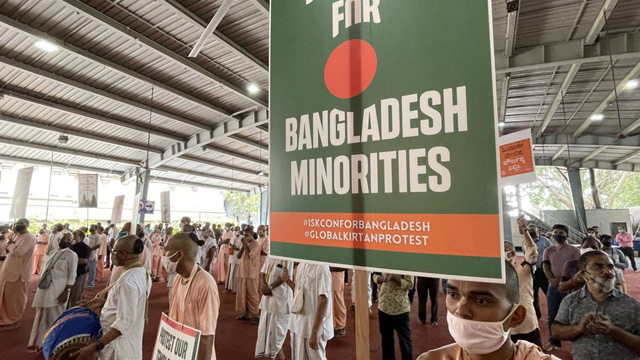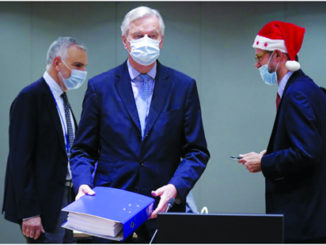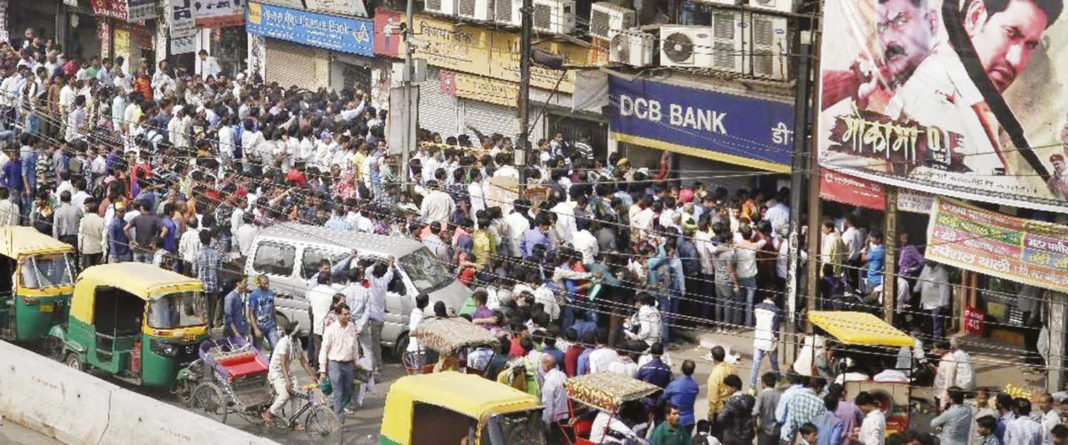
It is imperative that both Bangladesh and India, along with the international community, work together to defuse tensions, protect minority rights, and uphold the values of democracy and human dignity. Only through collective efforts can the region hope to achieve lasting peace and stability.

Bangladesh, historically a beacon of resilience and progress in South Asia, is currently grappling with political and social turmoil of a magnitude that has sent ripples across the region. The ouster of Sheikh Hasina, the country’s longest-serving prime minister and leader of the Awami League, has left a void in the political landscape and unleashed a wave of uncertainty. The situation has been further exacerbated by the former leader seeking asylum in India, a move that has added fuel to the already simmering tensions between the two nations.
The Political Vacuum in Bangladesh
Sheikh Hasina’s leadership, marked by economic progress and relative political stability, came to an abrupt end amidst allegations of authoritarianism and electoral manipulation. Her ouster has plunged Bangladesh into a state of political uncertainty, with power struggles between rival factions, including the opposition Bangladesh Nationalist Party (BNP) and Islamist groups, intensifying. The absence of a strong central authority has emboldened extremist elements, leading to a spike in communal violence and targeted attacks.
The Hindu minority in Bangladesh, which constitutes approximately 8% of the population, has found itself at the center of this unrest. Reports of attacks on Hindu men and women, desecration of temples, and threats of mass killings by radical Islamist groups have surfaced, painting a grim picture of the ground reality.
Atrocities Against Hindus: A Frightening Trend
While communal violence in Bangladesh is not a new phenomenon, the scale and intensity of the recent attacks have raised alarm. In the past few months, several incidents have been reported.
Desecration of Temples: At least 15 Hindu temples have been vandalized or destroyed since the political upheaval began, according to local sources. Religious idols and sacred texts have been desecrated, fueling fears among the Hindu community.
Attacks on Individuals: Human rights organizations have documented over 200 cases of violence against Hindus, including physical assaults, abductions, and sexual violence against women.
Mass Exodus: Fear of persecution has reportedly driven thousands of Hindus to flee their homes, with many seeking refuge in neighboring India. Border towns in West Bengal and Assam have reported a sharp increase in the arrival of Bangladeshi Hindu refugees.
The situation has drawn widespread condemnation from international human rights groups, but the lack of decisive action from the interim government in Bangladesh has only emboldened extremist factions.
India’s Media Frenzy and Political Implications
Indian electronic media, always hungry for sensational stories, has devoted hours to covering the atrocities against Hindus in Bangladesh. Graphic visuals, emotional narratives, and provocative debates dominate prime-time slots, often amplifying the crisis and shaping public perception.
This relentless media focus has created a charged atmosphere in India, where communal sensitivities are already high. The portrayal of Hindus as victims of Islamist aggression resonates deeply in a country where religious identity often intersects with political agendas. The ruling Bharatiya Janata Party (BJP), led by Prime Minister Narendra Modi, has been accused by critics of leveraging such narratives to consolidate its Hindu nationalist base.
In recent years, the Modi government has faced allegations of using Hindu sentiment as a political tool, particularly during elections. The crisis in Bangladesh provides fertile ground for the BJP to further this narrative, potentially leading to a rise in anti-Muslim rhetoric and actions within India.
The Danger of Escalation
The repercussions of the Bangladesh crisis are not confined to its borders. In India, a country with a significant Muslim population, the politicization of the issue risks triggering communal clashes. Historically, incidents of violence against Hindus in neighboring countries have often been followed by retaliatory attacks on Muslims in India.
There are already signs of tension:
Communal Rhetoric: Religious leaders and political figures in India have begun invoking the atrocities in Bangladesh to rally support, often using inflammatory language.
Protests and Violence: Demonstrations condemning the attacks in Bangladesh have been organized in several Indian cities, with some turning violent. Mosques and Muslim-owned businesses have been targeted in isolated incidents.
Border Tensions: The influx of refugees from Bangladesh has strained resources and heightened security concerns in border states like West Bengal and Assam, where communal relations are precarious.
If not managed responsibly, these developments could spiral into sustained clashes, not just in India but across the region, destabilizing South Asia as a whole.
The Need for Responsible Leadership
Amidst this volatile situation, the onus lies on the leadership in both Bangladesh and India to act responsibly. The political vacuum in Bangladesh must be addressed through dialogue and democratic processes to restore stability. International pressure and mediation may be necessary to ensure that minority rights are protected and extremist elements are curtailed.
In India, the government must resist the temptation to exploit the crisis for political gains. Instead, it should focus on:
Diplomatic Engagement: Collaborating with the interim government in Bangladesh to address the violence and ensure the safety of Hindus.
Media Regulation: Encouraging responsible reporting that informs rather than inflames public sentiment.
Community Outreach: Promoting interfaith dialogue and understanding to counter communal tensions within India.
Refugee Management: Developing a humane and effective strategy for managing the influx of Bangladeshi refugees, while addressing the security concerns of border states.
The Broader Implications for Regional and Global Peace
The crisis in Bangladesh and its potential spillover into India underscore the interconnectedness of South Asia’s socio-political dynamics. The region, home to over a billion people, cannot afford to be mired in communal conflicts that hinder development and progress.
Moreover, the international community must recognize the global implications of the crisis. Communal violence and political instability in South Asia have the potential to fuel extremism, disrupt trade routes, and impact global security.
It is imperative that both Bangladesh and India, along with the international community, work together to defuse tensions, protect minority rights, and uphold the values of democracy and human dignity. Only through collective efforts can the region hope to achieve lasting peace and stability.





Very balanced and well-articulated article on the grim situation for Hindus in Bangladesh, post regime change.